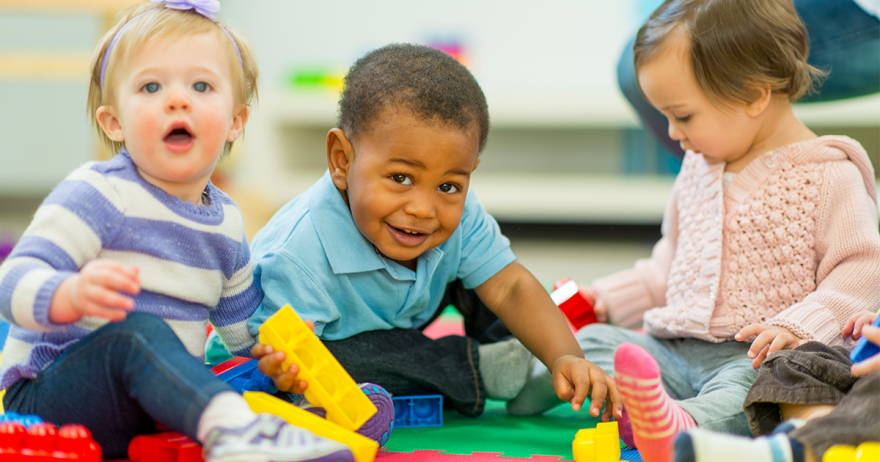
-
Table of Contents
Unlocking the potential of young minds through cognitive development.
Cognitive development in children refers to the process of understanding how children learn and develop their thinking abilities. It involves the growth and maturation of cognitive skills, such as perception, attention, memory, language, problem-solving, and reasoning. This field of study aims to explore the various factors that influence cognitive development in children, including genetics, environment, and social interactions. Understanding cognitive development is crucial as it provides insights into how children acquire knowledge, make sense of the world around them, and develop essential skills for future learning and problem-solving.
The Role of Play in Cognitive Development in Children
Cognitive Development in Children: Understanding how children learn and develop.
Play is often seen as a frivolous activity, something that children engage in to pass the time or simply have fun. However, research has shown that play plays a crucial role in the cognitive development of children. It is through play that children learn to think, problem-solve, and develop important cognitive skills that will serve them throughout their lives.
One of the key ways in which play contributes to cognitive development is through the use of imagination. When children engage in imaginative play, they are able to create new worlds, scenarios, and characters. This requires them to think creatively, use their imaginations, and think outside the box. By doing so, they are developing their cognitive abilities and expanding their thinking skills.
Furthermore, play allows children to experiment and explore. Through play, children can try out different roles, test out different ideas, and see what works and what doesn’t. This process of trial and error is essential for cognitive development as it allows children to learn from their mistakes and make adjustments accordingly. It also encourages them to think critically and analytically, as they evaluate the outcomes of their actions and make decisions based on their observations.
In addition, play provides children with opportunities for problem-solving. Whether it’s building a tower with blocks, solving a puzzle, or playing a game, children are constantly faced with challenges that require them to think and come up with solutions. This not only helps them develop their problem-solving skills but also enhances their ability to think flexibly and adapt to new situations.
Moreover, play promotes social interaction and communication, which are vital for cognitive development. When children engage in play with their peers, they learn to negotiate, cooperate, and communicate effectively. They learn to take turns, share resources, and work together towards a common goal. These social interactions not only enhance their cognitive abilities but also foster the development of important social and emotional skills.
Furthermore, play allows children to develop their memory and attention skills. Whether it’s remembering the rules of a game, recalling the steps of a dance routine, or paying attention to the details of a story, play requires children to use their memory and focus their attention. By engaging in play regularly, children can strengthen these cognitive skills and improve their ability to retain and process information.
Lastly, play provides children with a sense of autonomy and control over their learning. Unlike structured learning environments, play allows children to take the lead, make choices, and direct their own learning experiences. This sense of ownership and agency not only enhances their motivation and engagement but also fosters their independence and self-regulation skills.
In conclusion, play is not just a form of entertainment for children; it is a powerful tool for cognitive development. Through play, children learn to think creatively, problem-solve, and develop important cognitive skills. It allows them to use their imagination, experiment, and explore, promoting critical thinking and flexibility. Play also facilitates social interaction and communication, enhances memory and attention skills, and fosters autonomy and control over learning. Therefore, it is crucial that we recognize the importance of play in cognitive development and provide children with ample opportunities to engage in meaningful play experiences.
The Impact of Language Development on Cognitive Skills in Children
Cognitive Development in Children: Understanding how children learn and develop.
Language development plays a crucial role in the cognitive skills of children. As children grow and explore the world around them, their ability to communicate and understand language becomes a fundamental aspect of their cognitive development. Language not only allows children to express their thoughts and emotions but also serves as a tool for learning and understanding complex concepts.
From the moment they are born, children are exposed to language in various forms. They listen to their parents’ voices, hear conversations, and are surrounded by words and sounds. This exposure to language is the foundation upon which their cognitive skills are built. As they grow older, children begin to imitate the sounds they hear, eventually forming words and sentences of their own.
The acquisition of language is a complex process that involves both receptive and expressive skills. Receptive language refers to a child’s ability to understand and comprehend spoken language, while expressive language refers to their ability to communicate their thoughts and ideas effectively. These two aspects of language development work hand in hand to enhance a child’s cognitive abilities.
When children are able to understand and use language effectively, it opens up a world of possibilities for their cognitive development. Language allows children to engage in conversations, ask questions, and seek information. Through these interactions, they develop critical thinking skills, problem-solving abilities, and the capacity to reason and analyze information.
Furthermore, language development also impacts a child’s ability to learn and acquire new knowledge. As children develop their vocabulary and language skills, they become better equipped to understand and comprehend new concepts. They can read books, listen to stories, and engage in discussions that expand their knowledge and understanding of the world.
Language also serves as a tool for memory and recall. When children learn new words and concepts, they are more likely to remember and retain that information. They can use language to label and categorize objects, events, and experiences, which aids in memory formation and retrieval.
Moreover, language development fosters social interaction and emotional intelligence in children. Through language, children can express their feelings, needs, and desires, and understand the emotions of others. This ability to communicate effectively enhances their social skills, empathy, and understanding of others’ perspectives.
In conclusion, language development plays a significant role in the cognitive skills of children. It serves as a foundation for their ability to understand and express themselves, learn new concepts, and engage in critical thinking. Language development not only enhances cognitive abilities but also fosters social interaction and emotional intelligence. As parents and educators, it is crucial to provide children with ample opportunities to develop their language skills, as it is a key factor in their overall cognitive development. By nurturing language development, we can empower children to become confident learners and thinkers, ready to explore and understand the world around them.
The Influence of Social Interactions on Cognitive Development in Children
Cognitive development in children is a fascinating subject that has intrigued researchers and parents alike for centuries. Understanding how children learn and develop is crucial in providing them with the necessary tools to thrive in their environment. One aspect of cognitive development that has gained significant attention is the influence of social interactions on children’s cognitive abilities.
Social interactions play a vital role in shaping a child’s cognitive development. From the moment they are born, children are immersed in a world filled with social stimuli. They interact with their parents, siblings, and peers, learning from their experiences and observations. These interactions provide children with opportunities to develop their cognitive skills, such as language acquisition, problem-solving, and perspective-taking.
Language acquisition is one of the most prominent cognitive skills that children develop through social interactions. From the earliest stages of infancy, children are exposed to language through their interactions with caregivers. They learn to communicate their needs and desires, and as they grow older, they begin to understand and use more complex language structures. Through conversations and interactions with others, children expand their vocabulary, learn grammar rules, and develop their ability to express themselves effectively.
Social interactions also play a crucial role in developing children’s problem-solving skills. When children engage in play with their peers, they are presented with various challenges that require them to think critically and find solutions. Whether it’s building a tower with blocks or solving a puzzle, children learn to analyze the situation, plan their actions, and adapt their strategies based on the feedback they receive from their peers. These interactions foster the development of problem-solving skills, which are essential for success in academic and real-life situations.
Furthermore, social interactions provide children with opportunities to develop perspective-taking skills. When children interact with others, they learn to understand different points of view and consider the thoughts and feelings of others. This ability to take another person’s perspective is crucial for developing empathy and building positive relationships. Through social interactions, children learn to recognize and respond to the emotions of others, which enhances their social and emotional intelligence.
It is important to note that the quality of social interactions also plays a significant role in children’s cognitive development. Positive and supportive interactions provide children with a safe and nurturing environment to explore, learn, and develop their cognitive skills. On the other hand, negative or hostile interactions can hinder cognitive development and have long-lasting effects on a child’s overall well-being.
In conclusion, social interactions have a profound influence on children’s cognitive development. Through language acquisition, problem-solving, and perspective-taking, children learn and develop their cognitive skills. Positive and supportive social interactions provide children with the necessary tools to thrive and succeed in their environment. As parents and educators, it is crucial to create opportunities for children to engage in meaningful social interactions that foster their cognitive development. By understanding the influence of social interactions on cognitive development, we can better support children in their journey of learning and growth.In conclusion, cognitive development in children refers to the process of how children learn and develop their thinking, problem-solving, and decision-making abilities. It involves various aspects such as attention, memory, language, and reasoning skills. Understanding cognitive development in children is crucial for parents, educators, and researchers as it helps in creating appropriate learning environments and interventions to support children’s growth and development. By recognizing the different stages and factors that influence cognitive development, we can promote optimal learning experiences and foster children’s intellectual potential.






